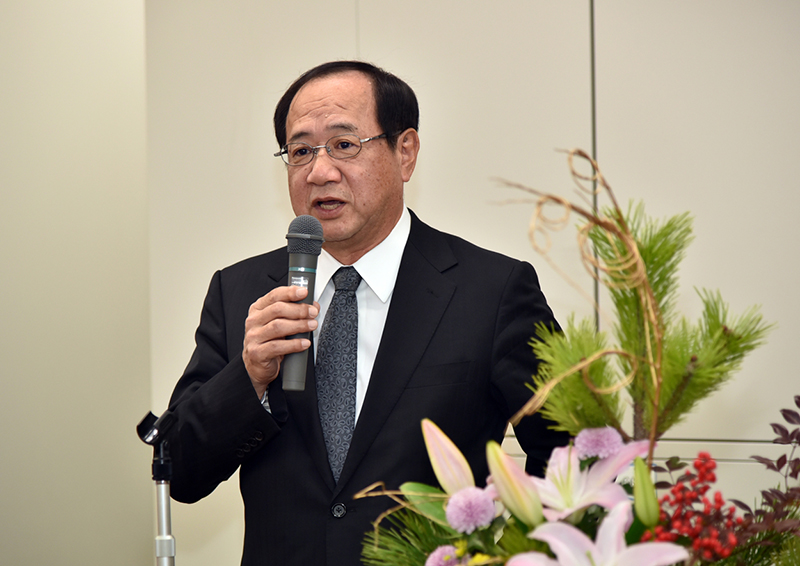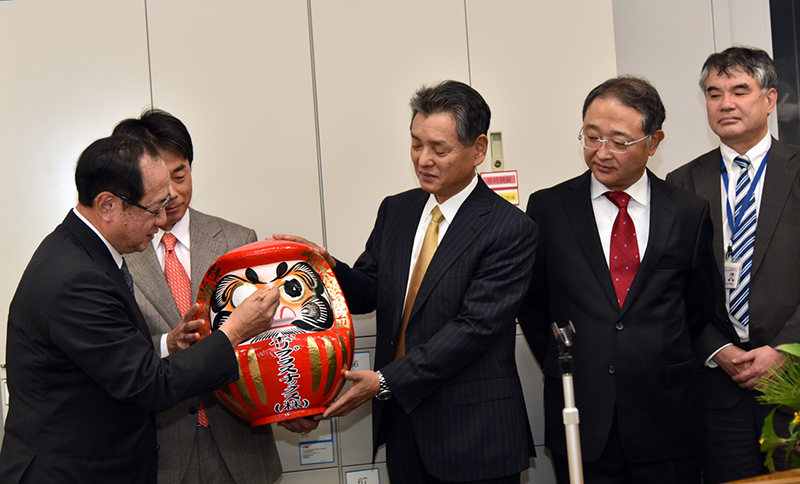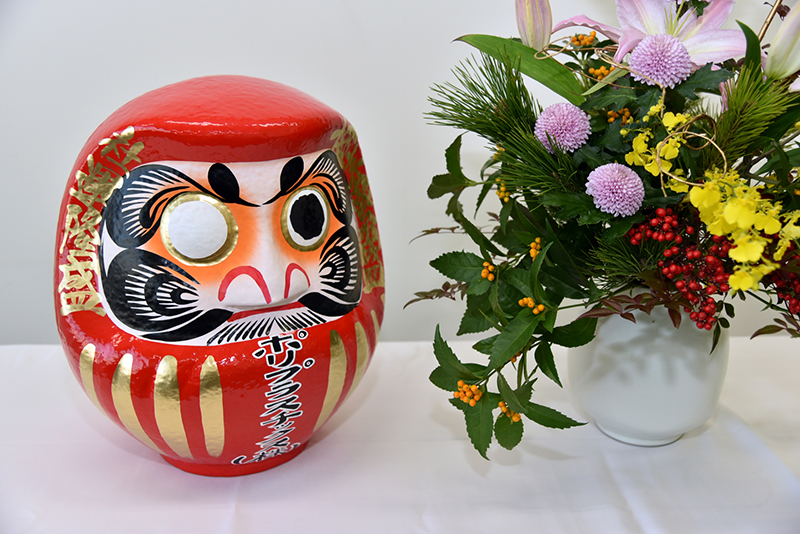
First of all let me wish you all a very happy new year. I sincerely hope that this would be a year of good health and lots of happiness for all group employees and their families.
The course of the global economy this year is likely to be largely influenced by two factors – the impact of the interest rate hike in the U.S. and the slowdown in the Chinese economy. At the time of preparing this message in early December last year, the U.S. had not increased the interest rate yet, but it was more or less sure that the interest rate would be raised by the end of December for the first time in nine and a half years, and the market’s interest has shifted to at what pace the rate would rise subsequently from 2016 onwards. The fact that the U.S. economy is looking up so much so that the government is embarking on normalization of its monetary policy is not necessarily a bad thing for the global economy, but the side effects it will have on the economy and financial affairs of emerging economies such as the outflow of capital from those economies or the currency depreciation there (price increase, decline in consumption, burgeoning of debts in terms of currencies of emerging economies) is not going to be small.
At the same time, the economies of emerging nations highly dependent on exports to China are even now facing stagnant growth due to the slowdown in the Chinese economy, and if the slowdown in the Chinese economy continues, coupled with the blow from the abovementioned side effects of an American interest rate hike, there are concerns that the global economy would be affected significantly. Of course, the pace of interest rate hike in the U.S. would be decided giving due attention to these factors and China also will not be taking an out-and-out policy of structural reform based on the new norm, but would be operating their economy while keeping an eye out for any excessive slowdown in the economy. I, therefore, don’t foresee much likelihood of the worst-case scenario. When we look at the global economic outlook announced by IMF in October last year or the economic outlook announced by the OECD in November, despite the downward revision of growth rate, both of them forecast that the global economy would grow at better rates in 2016 than in 2015. So, though I feel there is no need to be overly pessimistic, it is going to be a year in which we have to manage by ascertaining the economic situation carefully without any preconceptions.

Looking back on the Polyplastics Group’s business conditions in fiscal year 2015, while there were sales increases in the U.S. and European markets as well as in India, we were unable to achieve sales growth and expansion in most areas due to factors such as the slowdown in the Chinese economy, the lower growths in Asian economy except for India, a decline in production volume at Japanese automobile manufacturers and the slump in the electronics and device markets. Moreover, competition intensified due to the weakness of the market and prices continued to decline, resulting in a negative growth of net sales despite the weaker yen.
Our fiscal year 2015 consolidated forecast for net sales is 125.3 billion yen (down 2.9 billion yen, or 2% year-on-year), operating income is 16.0 billion yen (up 2.5 billion yen, or 19%) and net income is 8.9 billion yen (up 1.2 billion yen, or 16%). Net sales are expected to decline while operating income is expected to increase by 2.5 billion yen compared with a year earlier to a record high. If you look at the content of the profit increase, however, sales decline (including discontinuation of IPP) is expected to have a negative impact of 2.1 billion yen and the price decline is expected to result in 6.3 billion yen in profit decline, and these negative factors are expected to be made up by gains of 6.9 billion yen from price declines in methanol and other raw materials and fuels, 1.4 billion yen from cost reductions, 0.1 billion yen from SAR reduction and 2.2 billion yen from foreign exchange fluctuations. If you put it in terms of track and field, we are renewing the record assisted by wind (a very strong one at that). We have to improve our basic physical fitness (on-site capabilities), shed unnecessary fat (inefficient operations and unnecessary expenses) and acquire high skills (technological innovations, human resources skills and development of new markets) so that we can renew the record even in a headwind.
This year, we are starting the final fiscal year of the medium-term management plan. I would like to see all Group employees to try even harder to achieve the strategic goal of “building a global business structure worthy of the No.1 solution provider for engineering plastics” set forth in the plan.
The other day, I saw the following news.
Japanese ice skaters invited a Dutch coach and incorporated Dutch-style training, after which many of the athletes renewed their records one after another, something the athletes hadn’t been able to do for a long time. The Japanese style of training generally is a repetition of the same thing for many hours every day, while in the Dutch style the athletes work intensively on different types of training every day for a short period of time, so that they would not carry over the mental and physical tiredness to the next day and can bring out their ability to the full extent in competition.
Don’t you think this offers us good pointers when thinking of the working style, work-life balance and improvement of work efficiency of the Japanese? It also makes us realize the importance of learning from people with different cultural backgrounds or those from outside regarding things that are hard for us to realize on our own and therefore are hard to change. Let this be a year in which the company can transform itself by daringly pursuing new ideas and new ways.
